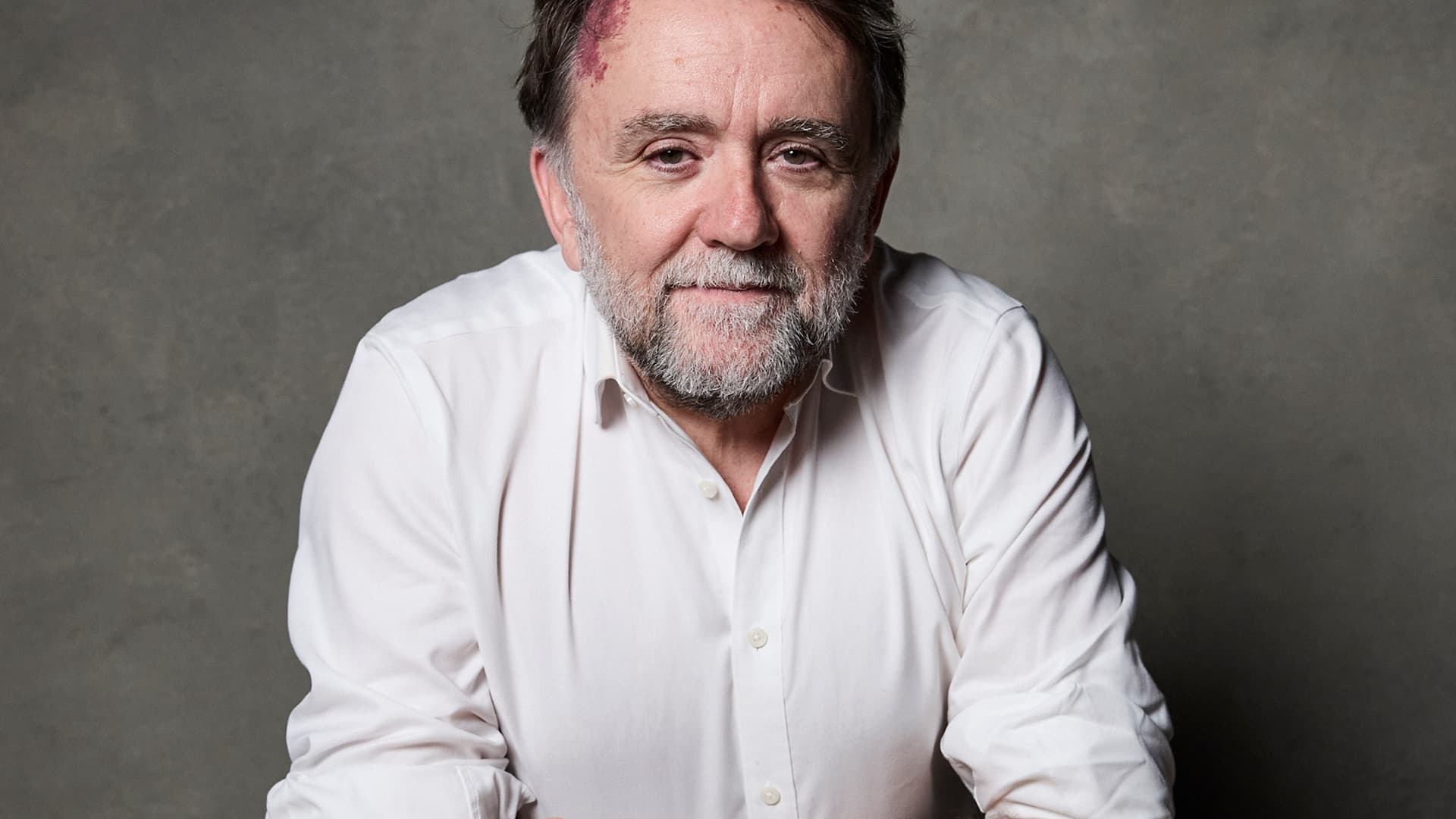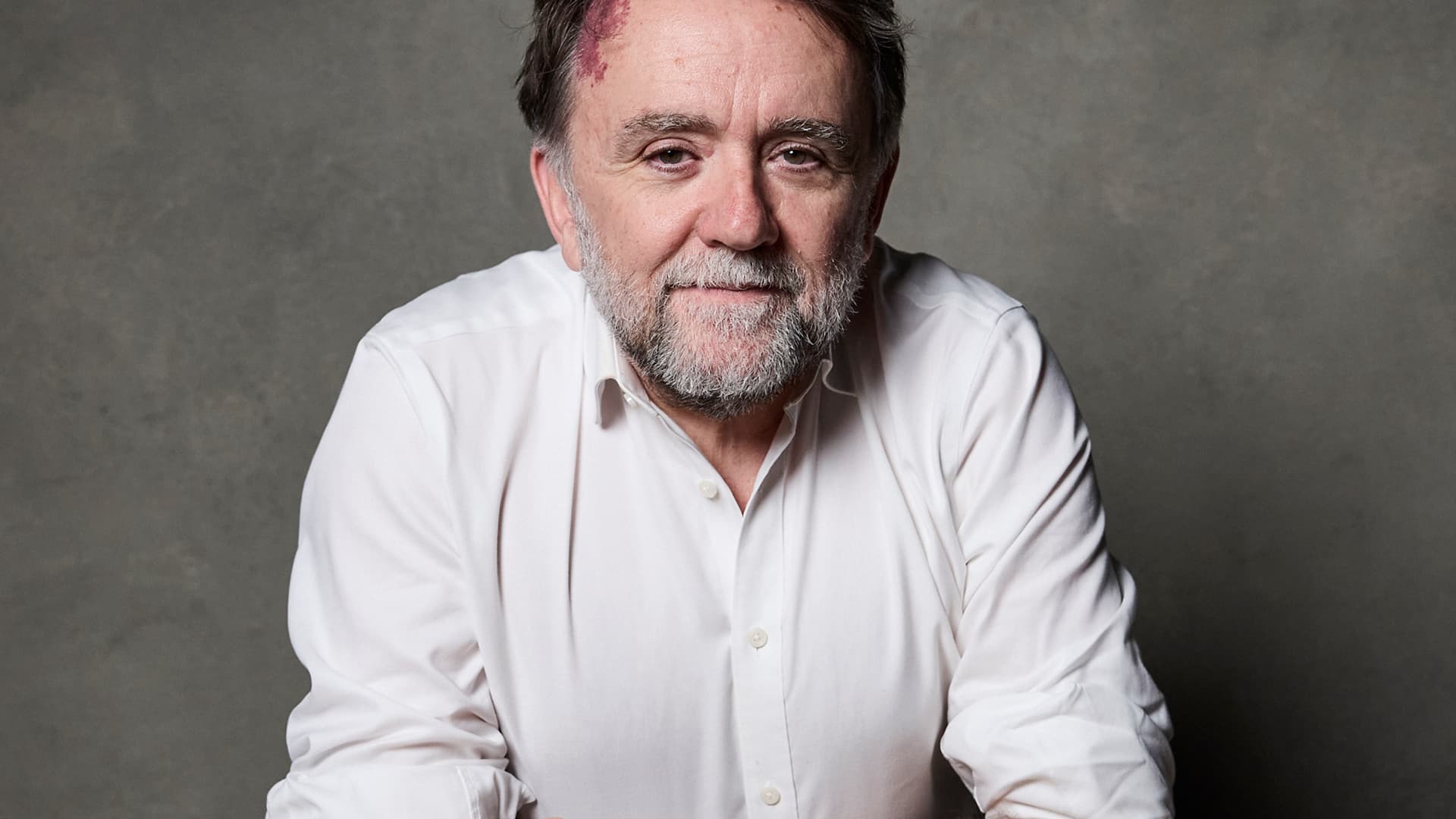
AFF 2025 Don Dunstan Award
Festival Info
AFF 2025 Don Dunstan Award
AFF's 2025 Don Dunstan Award recipient is acclaimed filmmaker Robert Connolly.
Robert's 30-year film career encompasses dozens of films and demonstrates his belief that creators empower themselves and control authorship by being entrepreneurs.
As a director, writer and/or producer, he has made big hits, crowd-pleasers for young people, and politically important films. Think The Dry (2021), Paper Planes (2015), Balibo (2009) and The Boys (1998).
As an innovator and enabler, he has assisted new generations to diversify and refresh the industry. Think Pasa Faho (2025), Sweet As (2022) and The Turning (2013).
Robert ConnollyEssay
By Sandy George
“We’re unafraid of making unashamedly Australian work with Australian talent,” says film practitioner Robert Connolly, who’s also unafraid of adapting Australian books. The recipient of the 2025 Don Dunstan Award talks about making film, the impact of homegrown film and film in general with pure, infectious enthusiasm.
He has directed nine feature films including The Dry, an adaptation of Jane Harper’s novel starring Eric Bana as Federal Police agent Aaron Falk. attracted a whopping $20 million dollars’ worth of ticket sales, or about 1.3 million filmgoers in 2021. That result makes it the third biggest homegrown crowd pleaser in Australia in 25 years after Lion and Red Dog – not counting films financed with US studio money.
Connolly had two films in cinemas last year, the sequel Force of Nature, and Magic Beach for preschoolers, in which different artists animated Alison Lester’s 35-year-old picture book of the same name. Connolly’s Paper Planes (2014) was for primary school children and the environmental drama Blueback (2022) for teenagers.
“I had government screen agencies literally say ‘it's an impenetrable audience because of the power of Pixar and Disney’, says Connolly, referring to the challenge of financing Paper Planes. The $9.7 million result proved that perception wrong.
Blueback and The Turning (2013), a collection of intertwined short stories directed by different people including Connolly, were adapted from Tim Winton’s work. The Turning, being an anthology with different actors playing the same character across different stories, was always going to be a hard sell but it was ushered into cinemas by the distribution arm of Connolly’s multi-faceted Melbourne-based film business ArenaMedia, in partnership with Madman.
Producers run the business that sits behind filmmaking. Connolly learned producing skills from John Maynard, mentor, champion, and one-time business partner – and producer of the first three films he directed, The Bank (2001), Three Dollars (2005), based on Elliot Perlman’s novel, and Balibo (2009).
ArenaMedia is a filmmaking hub for many. Connolly is often on the producing teams of several films, while directing another: “Our business model is based on a mix of cinema with scale, reflecting where I'm at in my career, and bold work with an adventurous spirit from emerging directors. I work with gifted people and am so proud of long-time producing partner Liz Kearney for her Academy Award nomination for Memoir of a Snail (2025), an example of other films we throw into the mix.”
Writer/director Adam Elliott, also a producer, was nominated alongside Kearney.
Connolly and Kearney champion new voices from traditionally underrepresented backgrounds as part of a Victorian Government scheme.
Separately to this they’ve stood behind many debut filmmakers including Jub Clerc (Sweet As, 2022) and others with huge reputations in a different creative field including former Bangarra artistic director Stephen Page, who made Spear (2015), innovative in the way it combined the thrill of modern dance with the grittiness of the modern indigenous experience. Connolly regards smart actors as adept storytellers and has created many opportunities for them including Thomas M Wright (Acute Misfortune, 2019) and Frances O’Connor (Emily, 2022).
Connolly generates casting opportunities too. When he married casting agent Jane Norris, his father-in-law the late Terry Norris, said that the great thing about the union was it guaranteed employment. Norris was in Paper Planes and his wife, Julia Blake, was in The Dry.
“Jane has been a really creative force for me. She found the actors for all my films and challenged me years before anyone else to be bolder.”
ArenaMedia and his producing has given Connolly a freedom that most directors don’t have: “Filmmakers now have to take control of their own destiny and the only way to do that is to think like an entrepreneur. Otherwise, you're bobbing in an ocean with no rudder. It allows you to be more able to tell the stories that you want to tell and have more creative control. George Miller (the mad max films) and Baz Luhrmann (The Great Gatsby) with their big epic works, are both producers.”
He acknowledges that being entrepreneurial is not easy for people starting out.
Connolly’s Balibo is being screened at 2pm on Saturday 25 October at the Adelaide Film Festival. The adaptation tells the true story of five Australian-based journalists captured and killed just prior to the Indonesian invasion of East Timor in 1975. On the day of the screening, it will be 50 years and nine days since the men died. No-one has been held to account still.
“Across a lengthy career, it's the film I'm most proud of,” he says, adding that it's his least successful at the box office. “They say your films are like your children. Some grow up to be more successful than others, but you’re not allowed to say which one’s your favourite. So I've just broken that rule.”
Connolly is now preparing to direct his tenth film, Shiver, a contemporary retelling of Nikki Gemmell’s first and most autobiographical novel, published in 2009. As a journalist in her 20s, Gemmell travelled to Antarctica to cover a scientific expedition. That experience, in that harsh beautiful wilderness, included falling for a man who died soon after, profoundly changing her. Making an admired film is hugely challenging, making one in those conditions ups that challenge.
Ask Connolly for a list of his favourite films and he names directors instead: Nicolas Roeg, Stanley Kubrick and Peter Weir. They’ve made too many films to list here but he has a particular soft spot for Roeg’s Don’t Look Now, was taken to Kubrick’s 2001: A Space Odyssey by his mother aged nine, and saw Weir’s Gallipoli on a Sydney school excursion.
“His (Weir’s) film The Year of Living Dangerously, helped me to have the courage to make Balibo. Shiver is my first love story and that’s part of the Peter Weir inspiration to work in many genres.”
Connolly’s films alone are worthy of the Don Dunstan Award for outstanding contribution to Australian screen culture. But he is also a great thinker and influencer on government policy, improving filmmaking processes and industry challenges.
On which Australian films get made and which don’t, he says: “Our industry has a massive issue with risk appetite and we're in a very conservative time in terms of the decision-making systems that are imposed by subsidy. So many checks and balances are imposed on you that disrupt innovation.”
On talent and generational change, he says: “In America, they value talent, in Australia, we value experience. We say ‘oh they've been doing it for a long time and have earned their stripes’. I heard a horrific figure that the average age of an Australian first-time film director is 36, whereas in Europe it's 27. I produced The Boys when I was 26. Byron Kennedy produced Mad Max when he was 27. Generational change is a big engine room for new work and we all need to shake the tree more.”
On artificial intelligence (AI) he says: “I don’t see it as a threat but as a powerful new tool: “I've always loved technology, I'm not fearful of it, I'm intrigued by it. And I'm not being disingenuous by being optimistic.
“Making distinctive authored work is the way we will exist in a comfortable and exciting way in the era of AI,” he says, a self-described collaborator and believer in the auteur theory, that is, the notion that a director is the primary force behind and author of a film.
“Film festivals celebrate authorship, authors of cinema. There you discover incredibly authored bold work and voices. Authorship is acknowledged, discussed and celebrated by audiences. Festivals also make courageous decisions that help build audiences. That's exciting.”
Connolly has a steadfast belief in the energy generated from the collective experience of watching films on the biggest screens of all. They’re also found in commercial cinemas of course. Many practitioners love film but, worn down by a contraction in the film market and the difficulty of elbowing in to mainstream cinema crammed with Hollywood blockbusters, they now make series for streamers such as Netflix, Stan and Prime.
“How do you finance Australian films when the biggest injection of funds into screen industries around the world is coming from streaming platforms? They’re throwing money at screen content, are happy to make feature films, and their audiences like them.”
“There’s so much complexity to raising money and it’s always changing. Cinemas are grappling with how to attract an audience for bold works while filmmakers are struggling to finance this work in a streaming-lead landscape.”
Connolly thinks this argy-bargy between streamers and cinemas is the industry’s biggest challenge, but it will be far from this mind when he’s at the Adelaide Film Festival.
“Festivals are hugely significant, including Adelaide’s. It has a place in our national culture because of the way it champions, screens, and boldly invests in the making of films, programs boldly, and champions authorship.”

